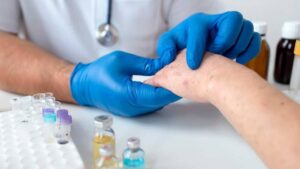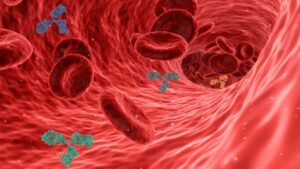Genital herpes HSV-2, for most people, is an occasionally recurring, sometimes painful condition for which effective treatment already exists. Any sexually active person is at risk of contracting genital herpes, regardless of gender, race or social class.
What is Herpes HSV-2?
HSV-2 is a type of herpes simplex virus that commonly causes genital herpes. It is a chronic viral infection, which means that once acquired, the virus remains in the body of the infected person for life. Although it is most commonly associated with genital herpes, it can also cause oral infections in some cases.
How is Herpes HSV-2 transmitted?
The primary mode of transmission of HSV-2 is through unprotected sexual contact with an infected person. The virus can be transmitted even when the infected person does not have visible symptoms, as viral shedding can occur through the skin or genital mucosa. Additionally, transmission can also occur through contact with active sores, known as herpetic lesions.
Herpes HSV-2 Prognosis
After the initial infection, HSV-2 remains in the body and can cause periodic recurrences. However, the frequency and severity of recurrences can vary from person to person. Some individuals may have only a few recurrences throughout their lifetime, while others may experience more frequent episodes. Stress, weakened immune system, and other factors can trigger recurrences.
Symptoms of Herpes HSV-2 Symptoms of HSV-2 typically appear within two weeks after exposure to the virus. However, some individuals may be asymptomatic or have mild symptoms, which makes the detection and diagnosis of the infection more challenging. When they do occur, the most common symptoms include:
- Genital lesions, which can manifest as blisters, ulcers, or open sores.
- Itching, burning, or discomfort in the genital area.
- Pain during urination.
- Swollen lymph nodes in the groin region.
It is important to note that HSV-2 can also be transmitted to other parts of the body, such as the mouth and eyes, through contact with active lesions.
Treatment of Herpes HSV-2
Although HSV-2 is a chronic infection, there are treatment options available to control symptoms and reduce the frequency and severity of recurrences. Antiviral medications such as acyclovir, valacyclovir, and famciclovir are often prescribed to suppress the virus and help alleviate symptoms. These medications can reduce the duration and severity of herpetic lesions, as well as decrease the risk of transmission to a sexual partner.
In addition to medication, other measures can help control HSV-2 infection. It is essential to practice safe sex, such as consistent condom use, to reduce the risk of transmission. Maintaining good personal hygiene, avoiding direct contact with active lesions, and having a healthy diet and nutrient-rich supplements to strengthen the immune system are also recommended.
It is crucial to emphasize that accurate diagnosis and appropriate counseling are crucial aspects of managing HSV-2. It is important to seek medical guidance as soon as suspicious symptoms arise or after exposure to the virus, especially to confirm the diagnosis through specific laboratory tests.
Sumary
HSV-2 is a herpes simplex virus primarily causing genital herpes. It is transmitted through unprotected sexual contact and can be spread even without visible symptoms. After the initial infection, the virus remains in the body, causing periodic recurrences of varying frequency and severity.
Common symptoms include genital lesions, itching, painful urination, and swollen lymph nodes. Accurate diagnosis is crucial for appropriate treatment. Antiviral medications can control symptoms, reduce recurrences, and lower transmission risk.
Safe sex practices, a healthy diet, supplements, and good personal hygiene strengthen the immune system to minimize outbreaks. Seeking medical advice is essential for diagnosis, treatment, and prevention. Proper management can effectively improve the quality of life for those affected by HSV-2.
Read also: Whats is Herpes HSV-1




